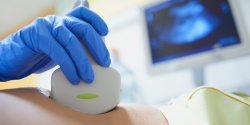Published: 16.11.2023

· The UN Committee on the Elimination of Discrimination against Women has issued a statement that the right to abortion is a human right and derives from international law.
· Accordingly, this body recommends that all states parties decriminalise and legalise abortion and provide 'gender' sensitive education on 'sexual and reproductive health' and rights in this area.
· This statement contradicts the norms of international law, which do not provide for a so-called right to abortion on demand in any treaty or other international human rights agreement.
The subject of the statement, entitled 'Protecting the life, health and future of girls by minimising unwanted pregnancies and guaranteeing access to safe abortion', is 'reproductive and sexual rights' and the related so-called right to abortion on demand.
In the statement, the authors lament that there has been a "regression" in some regions of the world and a retreat from "protecting girls' access" to "safe abortion" and "post-abortion services without due regard to the protection of their lives, physical and mental health and futures, nor recognition of their vital role and potential contribution to the human potential and economy of the nation". As an example, they cite the US Supreme Court's ruling in Dobbs v. Jackson Women's Health Organisation in June 2022, which held that a right to abortion does not derive from the US Constitution. According to the Committee, girls' access to abortion has deteriorated as a result of this judgment. The Committee goes on to state in a statement that "impeding girls' access to safe termination of unwanted pregnancy is contrary to States' obligations to guarantee girls' rights to equality, autonomy, privacy and reproductive freedom, the fundamental right to protection from unsafe health situations, and freedom from gender-based violence and cruel, inhuman or degrading treatment". In this regard, the Committee makes clear that "access to modern forms of contraception and to safe and quality abortion is a human right under international law and is particularly important for girls."
Therefore, in the statement, its authors call for, among other things, the decriminalisation and legalisation of abortion and the provision of 'gender-sensitive' education on so-called sexual and reproductive health and rights.
Significantly, however, abortion as a human right is not recognised in any of the international agreements. These recognise the right to life as the most important of human rights, followed by other rights such as the right to privacy. Nevertheless, several UN Committees in their official documents attempt to derive the so-called right to abortion from the concept of reproductive and sexual rights appearing in official documents of international organisations, as exemplified by the position of the Committee on the Elimination of Discrimination against Women.
The Committee on the Elimination of Discrimination against Women (CEDAW) is a specialised body, operating within the United Nations structure. The primary task of this body is to monitor the implementation of and compliance by State parties with the provisions of the Convention on the Elimination of All Forms of Discrimination against Women, adopted by the General Assembly in 1979. In accordance with its provisions, states parties are obliged to submit, at least once every four years, a report reporting on the implementation of the provisions of the said international agreement. After reviewing such a document, the Committee may make recommendations on the situation of women in the country concerned.
The Committee itself is composed of 23 experts, proposed by States Parties and elected for 4-year terms on a geographical basis. Importantly, the members of the Committee act in their personal capacity. This means that they do not represent their countries of origin.
- The statement issued by the Committee on the Elimination of Discrimination against Women should be regarded as another attempt to place abortion in the field of human rights outside of the treaty. In addition, its authors consider the ban on abortion to be a form of inhuman treatment. It is worth noting that human life is protected not only under the provisions of international law, but in the Polish legal order, this protection is also guaranteed by the Constitution of the Republic of Poland and the well-established jurisprudence of the Constitutional Tribunal, according to which, it is also protected in its prenatal phase,' points out Patryk Ignaszczak of the International Law Centre.

During Holy Week, when we remembered the martyrdom of Jesus, many Poles heard about the innocent death of 9-month-old Felek (such an altered name was given to him by Gazeta Wyborcza journalists). Potassium chloride – a substance used to carry out death sentences – was injected into the heart of the boy who was due to be born any day.

• Gazeta Wyborcza published an article titled "Ordo Iuris Wants the Constitutional Court to Delete the Premise of Endangering a Woman’s Health. Prof.

17.04.2025
• The Ordo Iuris Institute has prepared an opinion for the UN as part of a thematic report on surrogacy and its impact on the rights of women and children.

• Representatives of Ordo Iuris took part in the second round of consultations ahead of the 58th Session of the UN Commission on Population and Development (CPD58) on global health policy.